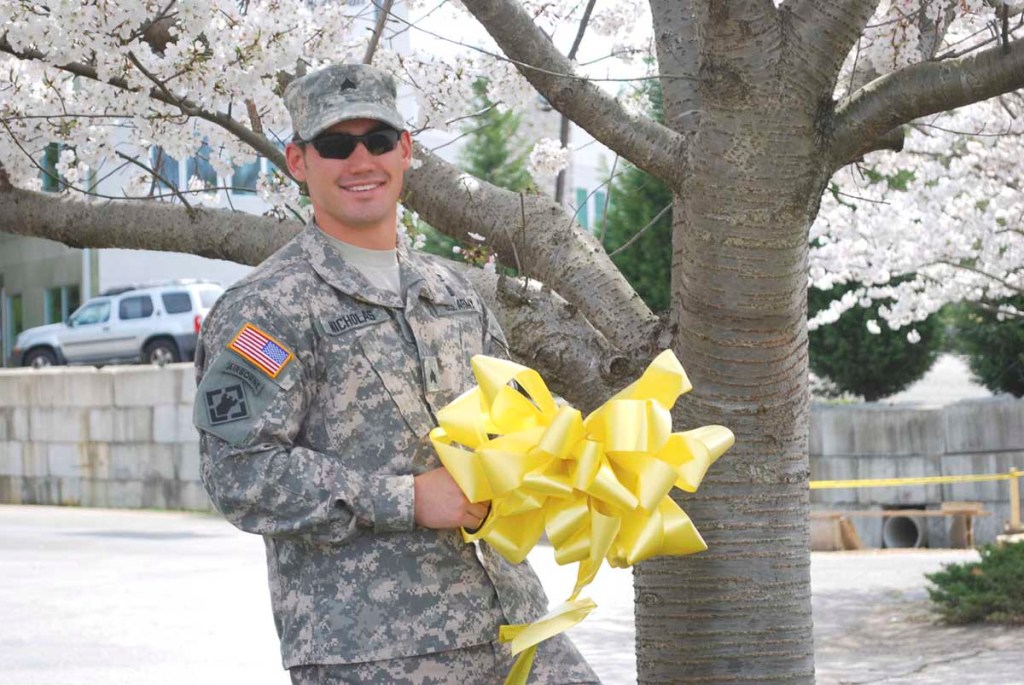Army diver home after one-year tour
Published 7:50 am Monday, April 5, 2010

- Sgt. Kyle Nicholas cuts a ribbon this week to symbolize his return home from a year-long deployment to the Middle East.
The Middle East brings to mind images of hot, dry places, but Kyle Nicholas says there is plenty of water to be found.
Trending
Nicholas, of Gardendale, is a diver for the U.S. Army, and just returned from a year-long tour in Iraq, Kuwait and other Middle Eastern nations.
“The Tigres and Euphrates Rivers are down there, and the Persian Gulf is on the border, so there’s a lot of places they need divers,” said Nicholas.
Nicholas’s job mostly involves heavy salvage. He once retrieved pieces of a bridge that was destroyed by a floating Improvised Explosive Device (IED). He also retrieves Army property from the bottoms of rivers or lakes, such as sensitive materials from downed helicopters or ships. He also does some reconnaissance missions.
“I’ve always been pretty easy in the water. I grew up near Mobile, so I spent plenty of time swimming,” said Nicholas.
Although his job doesn’t involve much combat, save for the occasional mortar attack or stray gunfire, it does have its dangers. Nicholas had a couple of near-drowning incidents while diving.
During a training exercise on night dives, the waves began to get rough, so the crew on the boat with Nicholas decided to pull him and another rookie diver out of the water.
Trending
He and the rookie were tethered together and to the boat by an umbilical cord that also served as a constant air supply to their suits. As they were being pulled up by a winch, the rookie accidentally tangled himself in the umbilical, cinching Nicholas’s tube.
To make matters worse, the neckband on Nicholas’s helmet came loose, and it flooded his helmet, shorting out his communications equipment and making it impossible to breathe.
“I was just about two feet below the water, but the crane had fouled up, and this guy was tangled up in my umbilical, and I was stuck there. I could stick one hand out of the water, but I couldn’t get above the surface to breathe,” said Nicholas.
He forced himself to dive deeper so that he could flush the water out of his helmet, which luckily dried the communication equipment off, too.
“I started yelling into the comm about what was happening, and they pulled us up. When I got on deck, I was so exhausted from hyperventilating that I kind of collapsed,” he said.
Despite the danger, Nicholas said he enjoys what he does, and he likes the job security that comes with it. Although he isn’t a fan of flying, he said he likes that his job takes him to new places and lets him travel.
“It’s forced me to experience things and go places, and that’s been good for me,” he said.
His mother, Kathy Maddox, said having her son overseas for a year was rough, but being able to communicate with him helped her get through it.
“Of course, it would be hard for any mom,” she said. “But, I had the support of family and coworkers. They were great about giving me time to talk to him on the phone, since the communication was so sporadic.”
Maddox said sometimes the emails and calls would come weekly, and sometimes two months would go by without any word from him.
Maddox and her friends and neighbors put up yellow ribbons when Nicholas was deployed. The ribbons stayed where they were until Nicholas got back to Alabama, when he cut them down to symbolize his return home.
Nicholas has been in the military for almost five years. He said he chose the Army because it was easy to get the job he wanted. He started out in basic training like everybody else, but afterward started doing specialized diving training.
“We did something called ‘confidence training’… we get into the bottom of a pool, and sometimes we’ll have a map, or we’ll have to take off our goggles and breathing mask and put them on again.”
Nicholas is an active duty Army sergeant in the 86th Engineer Diving Unit. He said it would probably be at least three years before he was deployed overseas again.





